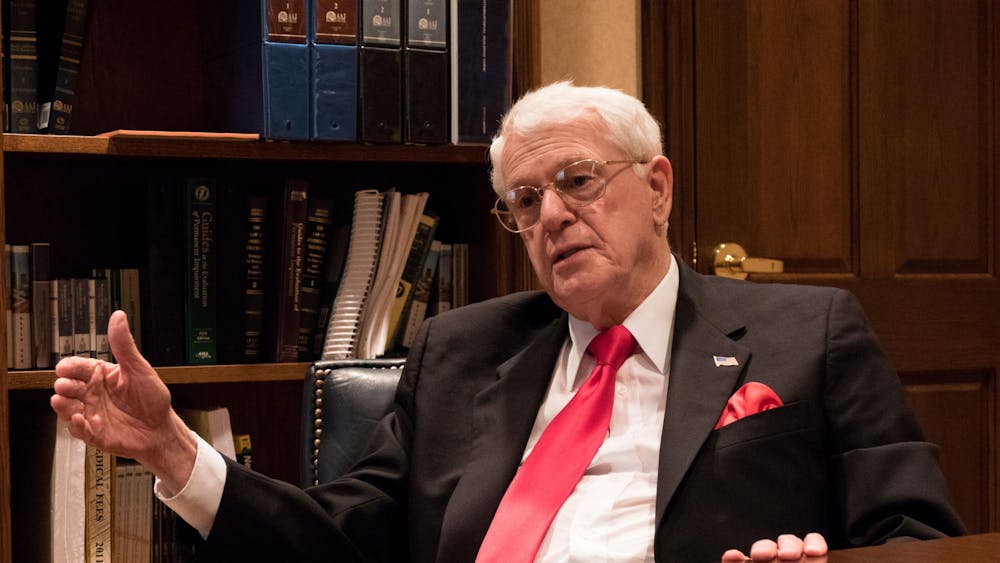More than a year after its creation, Bloomington United took a look at its past and planned for the future yesterday during a town hall meeting.\nBesides reports from three of Bloomington United's standing committees, the meeting, held at Monroe County Public Library, 303 E. Kirkwood Ave, included a presentation from Sandra Leek, the executive director of the Indiana Civil Rights Commission. She talked about the state's efforts to combat hate crimes. Roundtable discussions with the audience were included to brainstorm new directions for the group's future.\nBloomington United member Beverly Calender-Anderson said Bloomington United's origin came from the spread of hate literature by World Church of the Creator member Benjamin "August" Smith during Spring 1998. The mayor's Safe and Civil City task force met with community leaders to devise a response. A rally, which attracted more than a thousand people, was held to express Bloomington's diversity and inclusiveness, and from that point on, Bloomington United was created.\nSince then, it has worked to increase awareness of diversity issues and promote positive values to counter the spread of hate groups locally. But after its first rally, no one had any idea their next major event would come that summer after Smith's shooting rampage.\n"One of our best-known events is one we tried the hardest to avoid," Calender-Anderson said. "After (the killing of graduate student Won-Joon Yoon), we tried to heal and unite the community."\nBloomington United held a rally just days after the shooting to start that healing process. U.S. Attorney General Janet Reno attended, and it included a candlelight march and vigil and audience response. \nSince then, Bloomington United has formed several committees to further discussions about diversity and inclusiveness. One program, which Calender-Anderson is chairwoman of, is Study Circles. \n"They are small, deliberate circles ... to talk about issues affecting the community and ways to work together," she said.\nThe program, which has attracted more than 400 people in the past year, is designed to show what a small group can do to combat hate on a personal level, Calender-Anderson said. \nAnother committee is the museum committee, which is forming a traveling exhibit to demonstrate the causes and repercussions of violence on community members. Graduate student Christina Burke, chairwoman of the committee, said the exhibit's unveiling will be at next year's Martin Luther King Jr. Day festivities. It will consist mainly of video testimonies on how hate crimes "tear at the very fabric of our community," she said.\nLeek, who has headed the Indiana Civil Rights Commission for eight years, said the work of Bloomington United and other similar groups is vital in the fight against hate crimes.\n"I personally do what I can to battle hate crimes, but you are on the front line of what is happening," she said. "You are the heartbeats of your community." \nLeek's presentation included a detailed breakdown of hate crimes across the state, but until the Indiana General Assembly passed legislation requiring all police agencies to report hate crimes to the state, accurate data was not always gathered, she said. Bloomington was one of the few cities with a similar city ordinance, resulting in better data about hate crimes in the city.\nLeek said the road to a better understanding between people can often be a long, hard one.\n"If it's not messy, if you're not struggling, you're doing something wrong," she said. "This is not a dash. If anything, it's a marathon"
Bloomington United remembers past, but looks to the future
Local anti-hate group examines options to promote diversity
Get stories like this in your inbox
Subscribe





